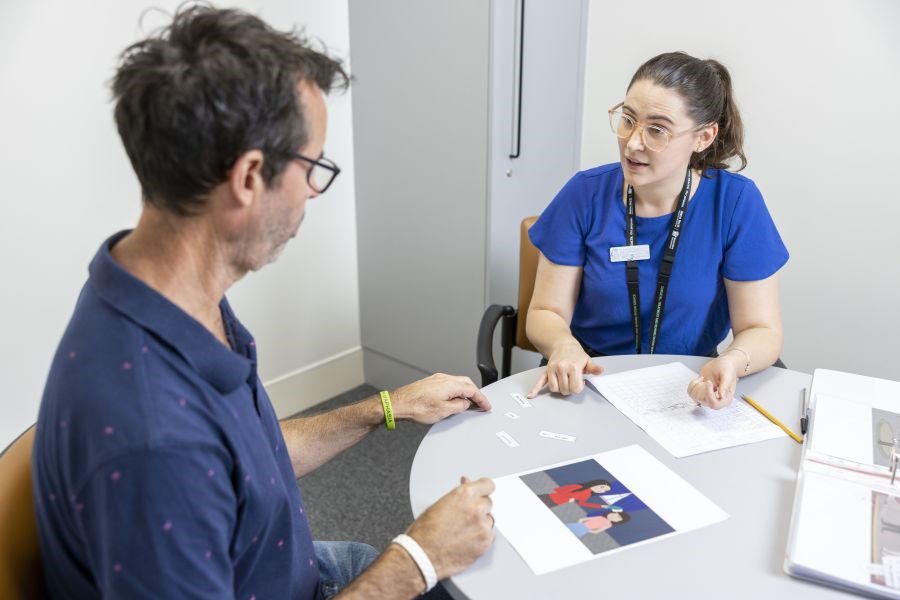Evidence-based rehabilitation program providing hope to those with aphasia

Patients in the Comprehensive, High-dose Aphasia Treatment (CHAT) program have shown significant improvement in language impairment, communication effectiveness and confidence, and overall quality of life.
The Comprehensive, High-dose Aphasia Treatment (CHAT) program, based at the Surgical, Treatment and Rehabilitation Service (STARS), is the first of its kind to be embedded within an Australian healthcare service.

Patients in the Comprehensive, High-dose Aphasia Treatment (CHAT) program have shown significant improvement in language impairment, communication effectiveness and confidence, and overall quality of life.
Aphasia is an acquired communication disorder that impacts a person’s ability to understand what they hear, read, say and write. It often occurs suddenly following a stroke or head injury.
The CHAT program involves 50 hours of evidence-based aphasia therapy, delivered by speech pathologists with the support of aphasia researchers, over an eight-week period. It is part of a collaboration between Metro North Health Service and the Queensland Aphasia Research Centre (QARC) at the University of Queensland.
For speech pathologist and CHAT research partner Dr Jade Dignam, the CHAT program is groundbreaking for aphasia sufferers.
“The CHAT program is based upon the best-available research evidence for aphasia rehabilitation. The program uses individual and group therapy, education and technology training to address the needs of people living with aphasia,” Dr Dignam said.
“The program is also personalised to address each patient’s communication goals. A patient’s goal might want to be able to read a short article in a newspaper or to increase contributions in conversations with family and friends.”
From 2021–2023, 100 hours of evidence-based therapy was delivered as part of the CHAT research project.
CHAT participants have shown significant improvements in language impairment, communication effectiveness, confidence in communication and overall quality of life.
The program has also greatly benefited the participants’ relationships with their friends and family.
“Perhaps beyond our goals being met, the most important outcome of CHAT has been the restoration of our hope,” one family member said.
The program’s success has been enhanced by the inclusion of consumer engagement. QARC’s research priorities have been co-designed with people with aphasia, their families and speech pathologists.
Following the successful clinical-research collaboration, CHAT is now offered to eligible patients in the STARS Day Rehabilitation service.
Future research aims to investigate delivery of the CHAT program by telerehabilitation, TeleCHAT.
